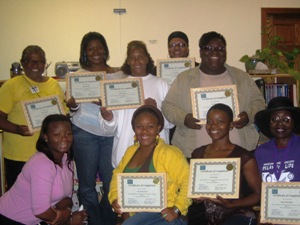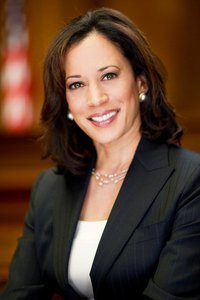 African Americans and Latinas are less likely than other women to develop certain cancers, but they’re also less likely to survive them. At WCRC, two new programs are training survivors to go into their own communities to help break down barriers to early detection and treatment.
African Americans and Latinas are less likely than other women to develop certain cancers, but they’re also less likely to survive them. At WCRC, two new programs are training survivors to go into their own communities to help break down barriers to early detection and treatment.
“There’s a reluctance on the part of African American women to get screened and to openly discuss the information,” says Dolores Moorehead, who leads the Community Health Advocates (CHA) program. Moorehead sees a need for education and support, particularly around breast and cervical cancers. “Many women are fearful,” she says. “They’ve heard stories from a grandmother or a friend, so they choose not to get screened. Their approach is ‘if it’s not broken, don’t fix it.’”
Moorehead trains and supervises advocates who speak at health fairs, churches, and workplaces; provide telephone support; and even go along on medical visits. CHAs have reached more than 400 African American women in Alameda County.
As an example of the program in action, advocate and cancer survivor Merry Montgomery accompanied client Christy Crowder to the UCSF medical center, helping her to negotiate the city’s transportation system and to fill out hospital forms. Crowder, new to the Bay Area and here without family, was deeply grateful. “It was extremely helpful to have emotional support from someone who had the personal knowledge of how I felt and could share some of that burden with me,” she says.
“They can show that there’s another side to the story,” says Moorehead, describing the importance of the advocates. Joanna Cuevas-Ingram, who formerly led Las Comadres, a program modeled on the CHAs, also sees the need for positive role models. “Las Comadres, especially as fellow survivors, inspire newly diagnosed women, providing much needed support and living proof that not every diagnosis has to be a death sentence; current research proves that women often survive if they are diagnosed early.”
Cancer survivor, patient, and comadre Yolanda Mendoza is a reporter for the Spanish-language radio station KIQI. Her message to listeners: “Please be on the safe side and have your doctor check you. Silence is what kills.”
====
Womens Cancer Resource Center (WCRC) | http://www.wcrc.org
MISSION: To empower women with cancer to be active and informed consumers and survivors; to provide community for women with cancer and their supporters; to educate the general community about cancer; and to be actively involved in the struggle for a life-affirming, cancer-free society.



No Comments